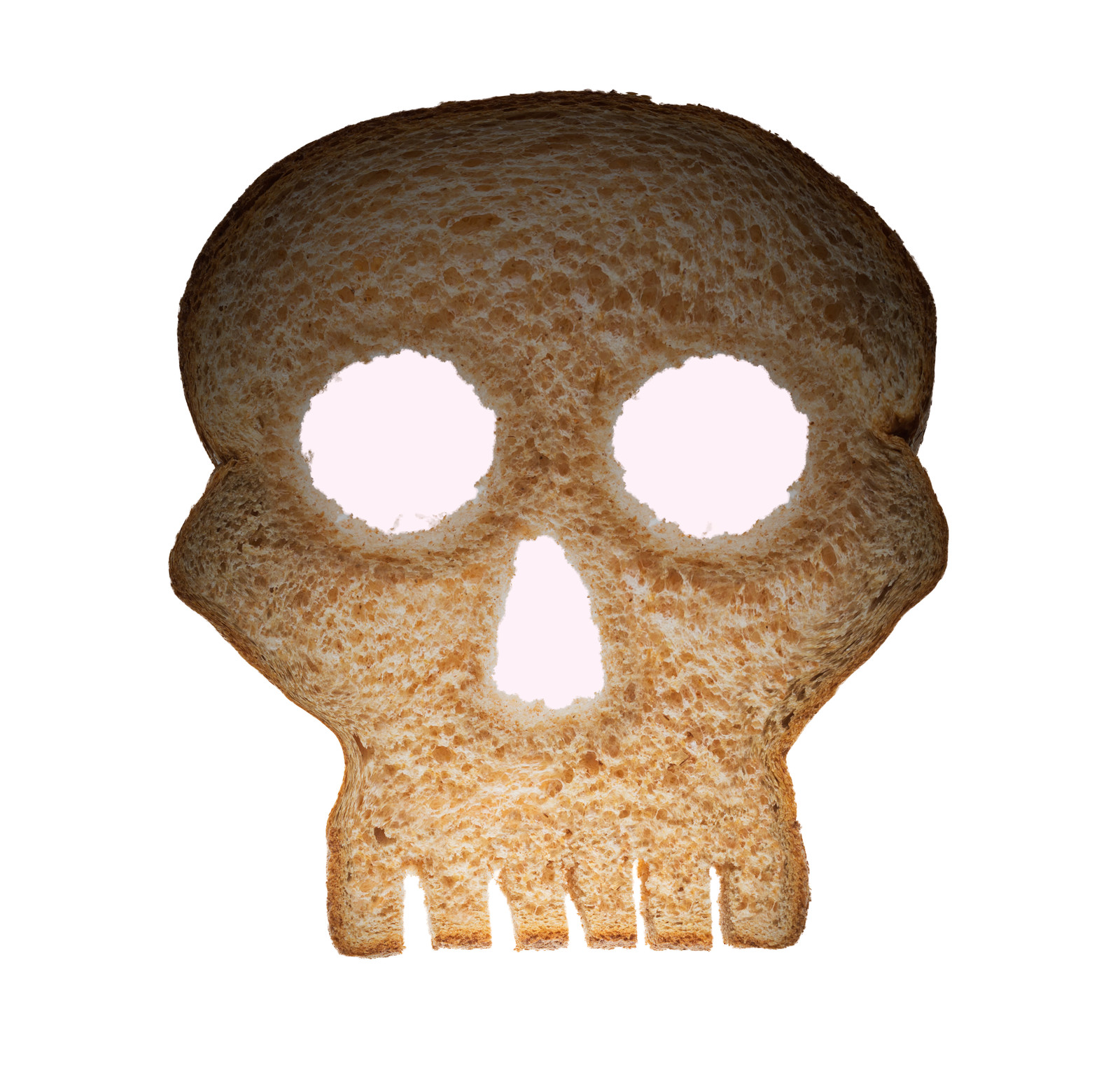Last year Dr. Miller gave a talk about gluten and it’s effect on us in our daily lives. So we included here for your reading pleasure – and of course to learn some key points about how to understand why gluten is so challenging these days.
This is a topic essential to current health issues, so may it help.
Toastmasters – August 2014 – Organic MD talk.
Hello and thank you for inviting me to speak tonight.
This talk addresses an issue that I’ve been wrestling with in my own private medical practice for some years now. I hope it’s as interesting for you as it is for me.
Before I begin I’d like a show of hands from anyone in the audience who has reduced or eliminated their consumption of gluten.
(Out of 30 people about a third raised their hands)
Thank you
Many of my physician colleagues regard the current popularity of wheat and gluten free diets as nothing more than a fad. From my experience with my clients, and my reading and research, I am here to propose to you tonight that this is a trend that is growing and here to stay.
Consider first the market for gluten-free food products. Over $10 billion of gluten-free food was sold last year and in the last five years the growth in the market for gluten-free foods is almost logarithmic. People spend all of this money on gluten-free breads, cookies, cakes, muffins and processed foods because they’re trying to avoid gluten AND they don’t want to give up bread and cookies and cakes and muffins. We still want our cake and eat it too – no pun intended.
And why are they trying to avoid gluten?
The explosive growth in the sale of gluten-free products is due to people figuring out that they feel better when they don’t eat wheat and gluten. These people for the most part are not avoiding wheat because their doctor recommended it. I can’t say that I have my finger on the pulse of current medical thinking at the Palo Alto Medical Foundation but I do have a good sense of how the doctors at El Camino Hospital are thinking these days. And I will tell you that unless you have a proven diagnosis of celiac disease, your doctor is not going to be advising you to give up bread.
We are a little ahead of the curve in California in adopting new ideas. I was just at a medical conference in Ohio last week and I can assure you that people still consider California to be the source of all that is new and novel and even a little bit crazy in medicine. My point is simply that the push for people to eliminate wheat and gluten from their diet is not coming from their doctors.
When I try to discuss the subject of food sensitivities with other physicians, especially sensitivities to wheat and gluten, I find that doctors and health professionals are quite frustrated by the topic. Things used to be much easier. When I was in medical school the only people who had a real problem with wheat and gluten were people that had a diagnosis of celiac disease. You can diagnose celiac disease with great certainty from laboratory tests and a biopsy of the small intestine.
 If those tests were negative and somebody continued to insist that they were healthier when they gave up eating wheat and gluten, you might give them the phone number of a good psychiatrist. Even with this simple model of celiac disease there are some significant problems. It is estimated that the incidence of celiac disease in this country is one in 100 people. So if you’re a doctor, for every 100 new patients that you see, you might find one new case of celiac disease. Yet surveys by the National Academies of Sciences show that the majority of primary care physicians who see thousands of patients during their careers never make a single diagnosis of celiac disease.
If those tests were negative and somebody continued to insist that they were healthier when they gave up eating wheat and gluten, you might give them the phone number of a good psychiatrist. Even with this simple model of celiac disease there are some significant problems. It is estimated that the incidence of celiac disease in this country is one in 100 people. So if you’re a doctor, for every 100 new patients that you see, you might find one new case of celiac disease. Yet surveys by the National Academies of Sciences show that the majority of primary care physicians who see thousands of patients during their careers never make a single diagnosis of celiac disease.
But now the conversation becomes more difficult. There is a growing body of data confirming the existence of people who show clear clinical improvement when wheat and gluten are removed from their diet, but who have no abnormalities in their laboratory testing and no abnormalities when a biopsy of the small intestine is done. What are we to do? For a while people like this were referred to as “silent celiac’s”.
This was never a very satisfactory term and the only logical thing to do then is invent a new diagnosis. We now tell these people that since they clearly demonstrate that their health improves when they give up wheat and gluten, but have no evidence of celiac disease, we give them a diagnosis of non-celiac gluten sensitivity or NCGS. The range of medical problems that can improve with elimination of wheat is quite varied, ranging from elimination of types of psoriasis, disappearance of anti-thyroid antibodies, disappearance of headaches and seizures, and reversal of the symptoms of Parkinson disease and Alzheimers. People do not simply report that they feel better. Problems with clear diagnostic criteria actually get better, simply with a change in diet.
For physicians and healthcare providers there is little comfort in this new diagnosis. Most of the people I see would like some sort of objective proof that they have a problem with gluten before they give up all their comfort foods. Doctors would like the same level of objective proof. But for this particular problem, there is no test that is 100%, providing a definitive answer about who has a problem with gluten and who doesn’t. We are left with following outcomes, which rarely is a comfortable place for modern medicine.
Medicine wants proof, and sometimes proof is hard to find.
Do people here know the scientist Bruce Ames up at Berkeley? Bruce Ames is the most published living scientist in the country and for the last 20 years most of his work involved nutrition. The physicians in the room were all taught the Ames test in medical school which he developed to quickly determine which substances are likely to cause cancer.
I had a chance to ask Dr. Ames why medicine shunned research based on outcomes and his simple answer was that when there are too many variables. You can never be certain about your conclusions. So in this discussion tonight, when we talk about people who give up wheat and gluten and who get better, there are likely other things in their diet and lifestyle that changed and to say that it is all due to giving up wheat might not be completely true.
Still, as a physician I’m left with simply telling people to just try it and let me know how they do.
Now the good news is that science is doing its part to find a way to make a clearer diagnosis. One of the problems that science is having is with the nature of modern wheat. Wheat is not a recombinant or genetically modified organism like corn or soybeans. But through selection we have in modern wheat a plant that is much more productive than the wheat grown 100 years ago. Modern wheat holds less than half the protein, 50 times more gluten and dozens of new proteins, some of which are proving to be more allergenic than gluten. Current laboratory tests that look for antibodies against gluten and gliadins are not even testing for these new proteins. So it is not surprising that the tests come back negative.
I think you have a sense now of at least some of the complexity of this issue of gluten sensitivity. And if you suspect that you or the people you’re working with might be sensitive to wheat or gluten, it is an easy, simple and cheap experiment to try giving up gluten for 4 to 6 weeks. You might be surprised at what happens. Just try it.
Thank you.

